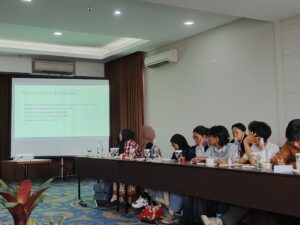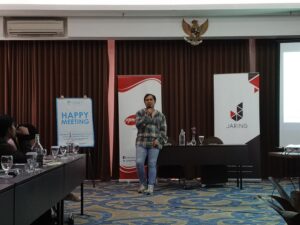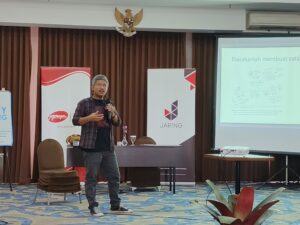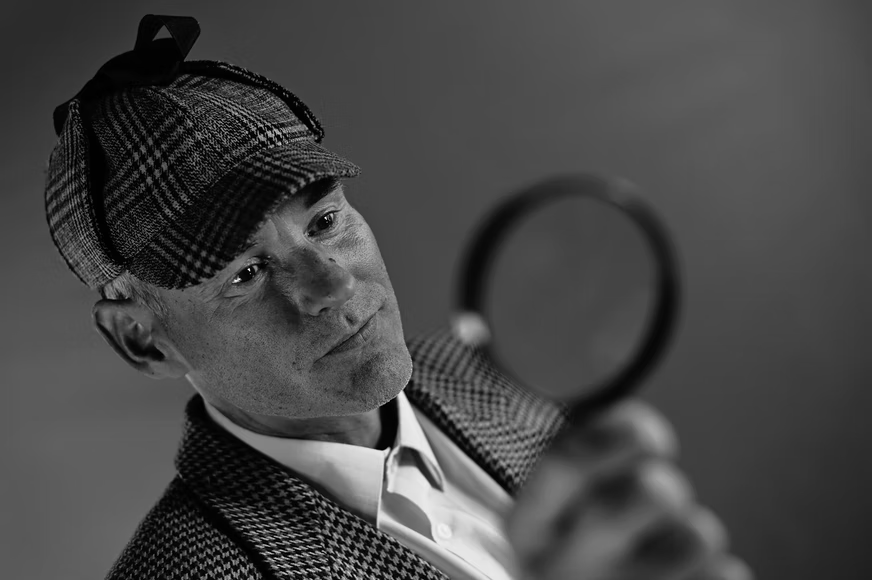When detectives conduct investigations, they do it to catch and convict criminals. But detectives are not the only ones who serve to investigate crime.

The work of investigative journalists play an important role in protecting and improving society. While the police will only investigate to prove guilt and get convictions, journalists are free to investigate less overt forms of illegal activity.
Acts of corruption, especially those committed by government officials and large corporations, are invariably covered up and often won’t be investigated by police. Some forms of foul play may not yet technically be illegal and so are not under the jurisdiction of the police, but still harm society as a whole. Exposing such corruption and foul play is the job of investigative journalists. Investigations carried out by journalists may not lead to convictions, but they still serve to protect public interest by informing readers of actions perpetrated by people in power which pose a threat to society.
The duty of investigative journalism does not lie solely on the shoulders of professional journalists, but also on student journalists on university campuses. Campuses are not immune to serious misconduct, and it is of the interest of all campus goers that such misconduct does not go unnoticed. Since professional journalists are off reporting what happens in general society, they are mostly incapable of following what happens in each of the hundreds of campuses in the country. It is thus the job of student journalists to report what goes on on their respective campuses.
Investigative journalism is far from easy. Investigations can take months or even years to carry out, and so are very difficult to fund. Nevertheless, journalists often have a moral obligation to pursue an investigation. It necessitates that journalists, especially student journalists, are aware of and are able to mitigate the risks or dangers that come with investigative journalism.

According to Damar Fery Ardiyan, a reporter for Jaring.id who spoke at the Empowering Student Press: Investigative Journalism Workshop held on 20-21 April 2024 by the Indonesian Association for Media Development in collaboration with Jaring.id and BandungBergerak.id, there are three types of risks for journalists; physical, digital, and mental. These risks can manifest in many different forms depending on the nature of the reportage, so they must be mitigated on a case by case basis. It could be that the risk is much more physical than digital or mental, or the other way around. In the case of investigative journalism, there may be physical threats made by the subject of investigation.

In the case of doxxing, which is becoming more and more of a risk for journalists, the danger is threefold. Not only does the perpetrator exploit your digital insecurity to leak your private information; it could lead to physical danger from bad actors who access that information. This leads to the immense mental burden that not only are you at risk and could be attacked at any moment, but also your loved ones.
Tri Joko Her Riadi, editor in chief of BandungBergerak.id who also spoke at the workshop, explains that for student journalists, threats are mainly directed towards their status as students. Since it is the weak point for all students, they are often threatened with bad grades and expulsion if they do not cease and desist.

Because of these risks, compounded by the fact that every case will be different, an investigative journalist must take extra precaution in preparing thoroughly before pursuing an investigation.
There are three steps that must be taken as preparation according to Joko.
First, the journalism proposal or terms of reference for the investigation must be comprehensive and thorough. This mitigates risk by having everything planned ahead and also serves to help understand everything that may go wrong.
Second, a journalist must understand and follow the Journalistic Code of Ethics as maintained by the Press Council. This not only ensures the quality of a journalist’s work, but also reduces the risk of litigation.
Finally, journalists, especially student journalists, must build and maintain a network. Being well connected with other journalistic organizations is ample protection against confrontation and threats. There are organizations such as Aliansi Jurnalis Independen (AJI) who serve to protect freedom of press. Networking can even be as simple as knowing a professor who is pro-journalistic freedom. Even if the entire campus is hellbent on taking you down, that professor could be the one to resolve your issues with university higher ups.
Furthermore, journalists must never work alone. You cannot shoulder all of the risks that come with journalism, especially investigative journalism, all by yourself. It is important that everyone on your team and in the organization as a whole works together to keep each other safe and to make sure the investigation runs smoothly.
According to Damar, another way to mitigate the risk of confrontation is to be creative and talk about the issue in a roundabout way. For example, if exposing certain documents would lead to litigation by the government or some other party, you could instead gather witnesses of those documents to give their testimony.
In this way, the same facts get exposed, but in a way that reduces the risk of confrontation. Damar speaks of the “Buku Merah” reporting on documents and video seized by the Corruption Eradication Commission.
“There was talk that the documents we had were government secrets and that anyone who exposes them will be prosecuted”, Damar explains, “We must be creative in order to be able to publish issues that we think are important”.
Investigative journalism may sound scary, but it is a noble duty and an opportunity for student journalists to grow. The agreement signed between the Press Council and the Ministry of Education and Culture on 18 March 2024 is a breath of fresh air for student journalists as it adds a layer of protection and guarantees the opportunity for student press to flourish.
“Be careful”, says Damar, emphasizing that adequate evidence must be obtained to defend your reporting. But he adds, “Don’t be paranoid”, explaining that you shouldn’t be afraid to be called by the rectorate for your reporting before you’ve even done anything. “It’s our space to learn”, asserts Damar.
Joko concludes with words of encouragement to student journalists who wish to conduct an investigation. “Happy learning, don’t give up, whatever the result. Good luck with your preparations. Keep improving yourself”, he says.
Reporter: Sajid Dhiyaurrahman Djunaedy
Editor: Shakila Azzahra M., Zulfa Salman

